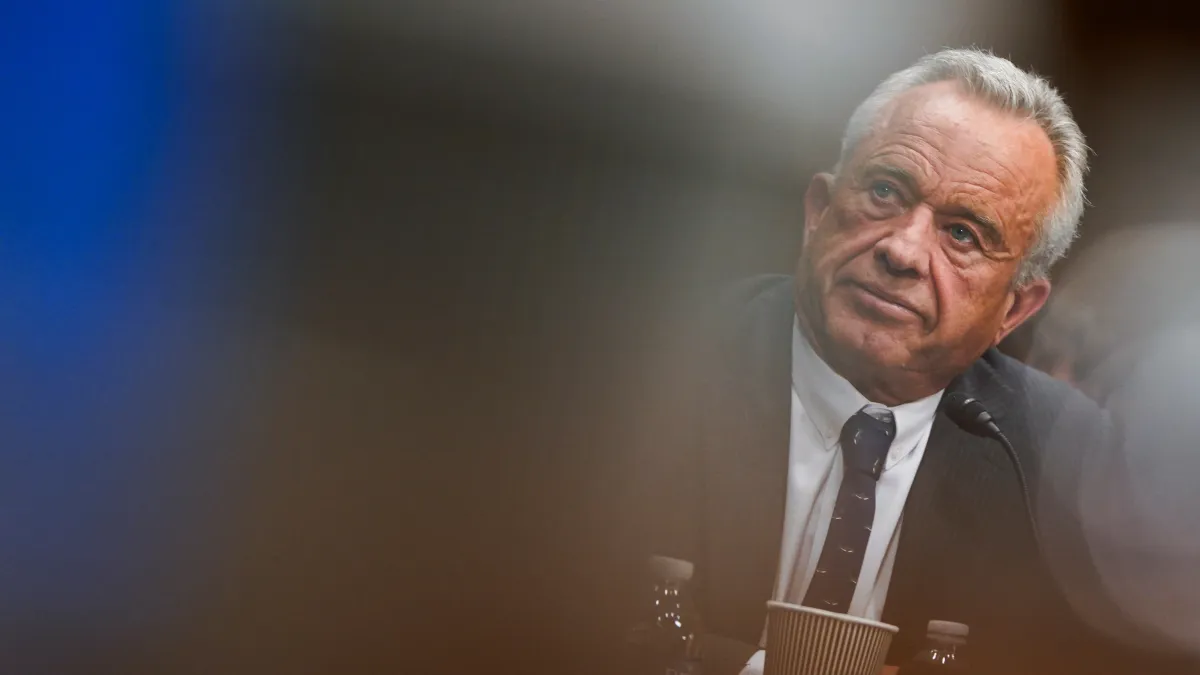
Health and Human Services Secretary Robert F. Kennedy Jr. said Thursday that he plans to lay off 10,000 employees, bringing staffing levels at his department down to 62,000 — roughly 20,000 fewer than when President Donald Trump took office.
In a press release, the department charged with enhancing the health and well-being of the nation — which currently accounts for about 25% of the federal budget — said the staff reduction is in accordance with a Trump executive order issued in February. The moves will save an estimated $1.8 billion in costs in a departmental budget that came to roughly $1.7 trillion last year.
The newly announced staffing cuts come on top of roughly 10,000 job reductions that resulted from the Trump administration’s government-wide offers of early retirement and voluntary separation.
Big changes ahead: HHS will also see significant reorganization, focused on Kennedy’s vow to “make America healthy again.”
“We aren't just reducing bureaucratic sprawl. We are realigning the organization with its core mission and our new priorities in reversing the chronic disease epidemic,” Kennedy said. “This Department will do more – a lot more – at a lower cost to the taxpayer.”
The organizational restructuring will include reducing 28 divisions at HHS to 15, closing half of the department’s 10 regional offices, and centralizing key functions, such as human resources, information technology, procurement and policy. A new Administration for a Healthy America will consolidate multiple existing offices, with a focus on chronic care, disease prevention programs and health resources for low-income Americans.
Job losses will hit multiple agencies within HHS. The Food and Drug Administration will lose 3,500 full-time employees, while the Centers for Disease Control and Prevention will lose 2,400, although the CDC will pick up 1,000 employees currently with the Administration for Strategic Preparedness and Response. The National Institutes of Health will eliminate 1,200 workers through centralization of office functions across its 27 institutes and centers. And the Centers for Medicare & Medicaid Services will lose 300 jobs, which HHS said “will not impact Medicare and Medicaid services.”
Advocates sound the alarm: Public health advocates expressed doubts about the likely effectiveness of the cuts and reorganization. “Losing people, losing money, making relationships dysfunctional is not going to improve the health of the American people,” said Dr. Georges C. Benjamin, head of the American Public Health Association, per The Washington Post. “Wrong diagnosis, wrong therapy.”
Democratic lawmakers said the layoffs and closures would hurt Americans who rely on public health services. “These offices work closely with communities to make sure child care, hospitals, and nursing homes are safe, strengthen rural health care, and much more," Sen. Ron Wyden, the senior Democrat on the Finance Committee, said in a statement. “The chaos that is coming will guarantee that kids and seniors fall through the cracks with deadly consequences.”
Sen. Patty Murray of Washington said she sees the cuts as largely destructive. “It does not take a genius to understand that pushing out 20,000 workers at our pre-eminent health agencies won’t make Americans healthier—it’ll just mean fewer health services for our communities, more opportunities for disease to spread, and longer waits for lifesaving treatments and cures,” she said, according to The Wall Street Journal.
Still, some lawmakers welcomed the news, saying HHS is unwieldy and in need of a shakeup.
Sen. Bill Cassidy, the Republican physician from Louisiana who played a pivotal role in approving Kennedy’s nomination for the top job at HHS, said he hoped the new plan would generate efficiency and improve services. “I am interested in HHS working better, such as lifesaving drug approval more rapidly, and Medicare service improved,” he told the Journal. “I look forward to hearing how this reorganization furthers these goals.”